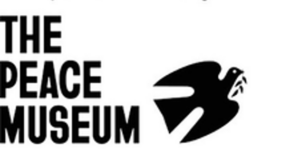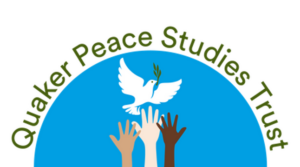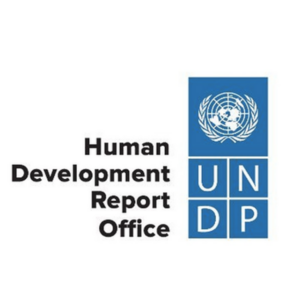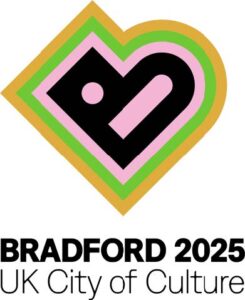
International Cooperative Alliance’s World Research Conference in Montreal
July 8 @ 8:00 am - July 11 @ 5:00 pm UTC+0
September 1-5, 2025
Hosted by the University of Bradford
“Culture, Peace and Capabilities”
At the heart of the capability approach (CA) is the idea of human flourishing. However, human flourishing is challenging, and in some cases, not possible, in a world of conflict and insecurity – whether between nations, or between groups within a country or between individuals at the micro-level of a society.
The foundational ideas of the CA (of both Sen and Nussbaum schools) envision a society where constitutional guarantees and deliberative public reasoning provide for the protection of minorities and disadvantaged individuals, and at a theoretical level these should be the starting points for building institutions to mitigate against conflict and to resolve conflicts where these appear.
As we welcome the community of the ‘Human Development and the Capability Association’ to the University of Bradford where the UK’s first Peace Studies Department was founded in 1973, the idea of connecting the CA with peace is an exciting and significant theme to explore. Bradford is also celebrating being the UK ’City of Culture 2025’. The year-long celebration recognizes the contributions made by generations of waves of immigrants over the last two centuries.
For more information, please visit the following page.
With support from:



![]()

HDCA Summer School 2025
HDCA Summer School 2025
Friday 29 and Saturday 30 August 2025
Bradford, UK
Register here!
Registration runs from May 6 to July 30.
We are excited to announce that this year HDCA Summer School will take place in person on Friday 29 and Saturday 30 August 2025 at the University of Bradford, UK, ahead of the HDCA conference.
The summer school aims to develop participants’ knowledge, understanding and application of key concepts in human development, with a particular focus on the capability approach. Giulia Greco (Giulia.Greco@lshtm.ac.uk) and Mikateko Mathebula (MathebulaM@ufs.ac.za) will lead the summer school, joined by guest lecturers and tutors.
The two-day programme will include sessions delivered by senior capability scholars and practitioners covering foundational concepts in human development and the capability approach, measurement issues, inequalities, and sustainability. Participants will also have the opportunity to discuss their research projects and receive feedback in a workshop style. All sessions will be in person and in English.
Summer School Eligibility
The programme is specifically designed for doctoral students and post-doctoral scholars who already have some understanding of development issues and are currently working with the capability approach. To be eligible for the 2025 HDCA summer school you must be a current doctoral student or postdoctoral researcher (within 2 years of receiving your doctorate) working with the capability approach. You must also attend the main HDCA conference in Bradford (separate registration and payment required).
Priority will be given to students who have not previously attended an HDCA summer school. Applications from students who have previously attended an HDCA summer school will be considered on a case-by-case basis.
If you have any queries about your suitability for the summer school, please email the Education Officers, Giulia Greco and Mikateko Mathebula for clarification.
Registration
The registration fee for the summer school is USD 100. It will include participation in the two-day programme, refreshments, two lunches, one evening meal, and course materials. It will not include travel or accommodation costs, so participants will need to budget accordingly.
If you are awarded a scholarship for this year’s main HDCA conference, you will be eligible to apply for up to USD 100 towards your costs for attending the summer school (payable following summer school registration).
Further details regarding the summer school registration process and practical information for the event (venue, programme, etc.) will be provided when the main conference registration opens in early May.
Please note that summer school places are limited and usually fill up very quickly.
Giulia Greco, HDCA Education Officer
Mikateko Mathebula, HDCA Education Officer
Epistemic Uprisings: Africanising Doctoral Education and Reclaiming the Intellectual Soul of the University
African higher education stands at a pivotal epistemic threshold, where the pursuit of global relevance often masks an ongoing intellectual subjugation. Nowhere is this contradiction more starkly visible than in doctoral education, a space still tethered to Euro-modernist logics that valorise detached objectivity, linear rationalism, and disembodied knowledge. These paradigms, often inherited uncritically, re-inscribe colonial hierarchies under the guise of methodological neutrality and academic excellence. In this presentation, I advance the provocation that doctoral education in Africa must be recast not as a site of intellectual mimicry but as a battleground for epistemic liberation, a space for insurgent scholarship that reclaims Africa’s right to theorise itself.
Framed within the context of the Doctoral Training Suite at the University of Zambia, a six-module curriculum designed to disrupt colonial knowledge architectures, Prof Chipindi explores how epistemological sovereignty can be enacted through intentional curriculum reconfiguration, supervisory decolonisation, and scholarly resistance to citational dependency.
Rather than romanticising indigeneity or essentialising African knowledge, he proposes a critical-creative praxis that fuses theoretical depth with political urgency. This work reframes African universities not merely as instruments of capacity development but as autonomous sites of world-making, spaces where the intellectual soul of the continent is defended, reimagined, and set ablaze.
Speaker: Prof Ferdinand Mwaka Chipindi, University of Zambia
Date: 30 July 2025
Time: 13:00 to 14:30 (SAST)
Venue: Online via MS Teams.
For more information as well as the MS Teams link, please contact Mikateko Mathebula at MathebulaM@ufs.ac.za.
3rd International Conference on Aporophobia, online, 23-24 October 2025
The third International Conference on Aporophobia is being held by a coalition of academic institutions from the University Ramon Llull, Spain, along with key social organisations such as Càritas, Arrels Foundation, Pere Tarrés Foundation, Assís, Cristianisme i Justícia and Jesuitas Social. Past two conferences had keynote lectures delivered by renowned academics such as Professors Adela Cortina (University of Valencia), Gustavo Pereira (University of Republica of Uruguay), Jesús Conill (University of Valencia) and Aaron Reeves (LSE), among many others, not to mention the voice of practitioners given by the participant social organisations as well as invited guests such as father Julio Lancelotti and Professor Esther Grossi, from Brazil or Spanish Government Officials such as Maria Jesús Raimundo Rodriguez, Prosecutor of the Hate Crimes and Discrimination Unit of the State Attorney General’s Office, Tomás Fernández Villazala, Director of the National Office to combat hate crimes in Spain or Manuel Serrano González, Chief Inspector of the National Police.
This year the conference will be online. This is not only for sustainability issues but for inclusion reasons, allowing a broader participation of colleagues all over the world.
Aporophobia is a real problem that impacts on the dignity of the most vulnerable people in our societies, turning their lives and the work of institutions that try to help them, much more difficult. Aporophobia adds stigma, prejudice and discrimination to the burden of poverty. It diminishes societies’ support to social policies. It weakens the degree of progressivity of governments’ taxes and public spending. Aporophobia magnifies other kinds of discrimination, such as gender and racial discrimination, among others.
For this third conference, our keynote speaker will be Professor Imogen Tyler from Lancaster University, UK. She has written extensively on issues of stigma power and social inequalities, exploring intersectionalities with gender, race, immigration, among others. We invite researchers from all over the world to explore in depth several issues related to the phenomena of aporophobia. This year, we are calling papers on thematic areas such as:
- Conceptual foundations of aporophobia
- Experiences of aporophobia
- The meaning and measure of poverty and social exclusion
- Aporophobia and homelessness
- Aporophobia and migration
- Aporophobia and education
- Aporophobia and health
- Aporophobia and mental health
- Empirical evidence on poverty and aporophobia
- Aporophobia and technological society
- Aporophobia and religion
- Aporophobia, social imaginaries and cultural traditions
- Design as a tool against aporophobia
- Aporophobia and infringement of rights
- Aporophobia and legal arrangements
- Measuring Aporophobia
But organizers welcome contributions on all themes related to how societies reject their most vulnerable members. Indeed, this is an interdisciplinary conference. We invite participants from many different fields of knowledge such as philosophy, economy, sociology, political science, management, health, education, history, criminology, among many others.
In order to produce a fully inclusive event, we will not charge conference fees. That is, participation in the conference will impose no costs on its participants. But places are limited, and registration will be equally requested.
To send proposals:
- Of academic articles: send summary with up to 1000 words with the title of the article, names and affiliations of authors and contact details of corresponding author,
- Of practical workshops: send summary with up to 1000 words with the title of the workshop, names of people and organisations involved, place and duration of the workshop.
All proposals should be sent to aporophobia@iqs.url.edu until 28 July 2025. The announcement of accepted proposals will be sent by email on 18 August 2025 at the latest.
More information here: https://aporophobia.iqs.url.edu/en/node/453
Intercooperation for our common futures
July 8-11 2025
HEC Montréal, Canada
From July 8 to 11, 2025, the Institut international des coopératives Alphonse-et-Dorimène-Desjardins (IICADD) will host the International Cooperative Alliance's World Research Conference in Montreal.
The central theme of the conference—Intercooperation for Our Common Futures—highlights the importance of inter-cooperation in creating transformative changes for justice, sustainability, and prosperity. This theme is particularly relevant as the year 2025 will mark the United Nations’ International Year of Cooperatives.
In addition to providing an important discussion platform on the role of cooperatives in implementing sustainable development goals, the conference will strengthen the global cooperative movement through engaging sessions, inspiring content, and meaningful networking opportunities.
Learn more: www.icaccr2025.org
The call for contributions is now open!
Researchers interested in presenting a paper or a panel can explore various research streams, including sustainable food systems, the circular economy, decolonizing the economy, governance systems and practices, governance and diversity, cooperative law, research with cooperatives, ethics, incarceration and cooperative solutions, innovation through inter-cooperation, the institutional and legal framework of the cooperative sector and social economy, the future of cooperative education and development, opportunities and challenges for financial cooperatives, renewable energy communities, reports on the sustainability of cooperatives, Principle 7 and care for the community, as well as the power of worker cooperatives to shape futures.
The submission deadline is January 15, 2025!
Please consult the submission process for more details. Note that submissions can be written in English, French, or Spanish.
For young researchers:
A one-day workshop will be organized for young researchers of the ICA CCR (YES) the day before the conference. This event, designed for master’s, doctoral, and post-doctoral students, as well as early-career researchers in institutions, is an excellent opportunity to meet peers and acquire new skills and in-depth knowledge in the field.
Contact the event organizers
For any specific questions regarding the conference or sponsorship opportunities, please contact mailto:info@icaccr2025.org. For any other information, please visit the event's website!

